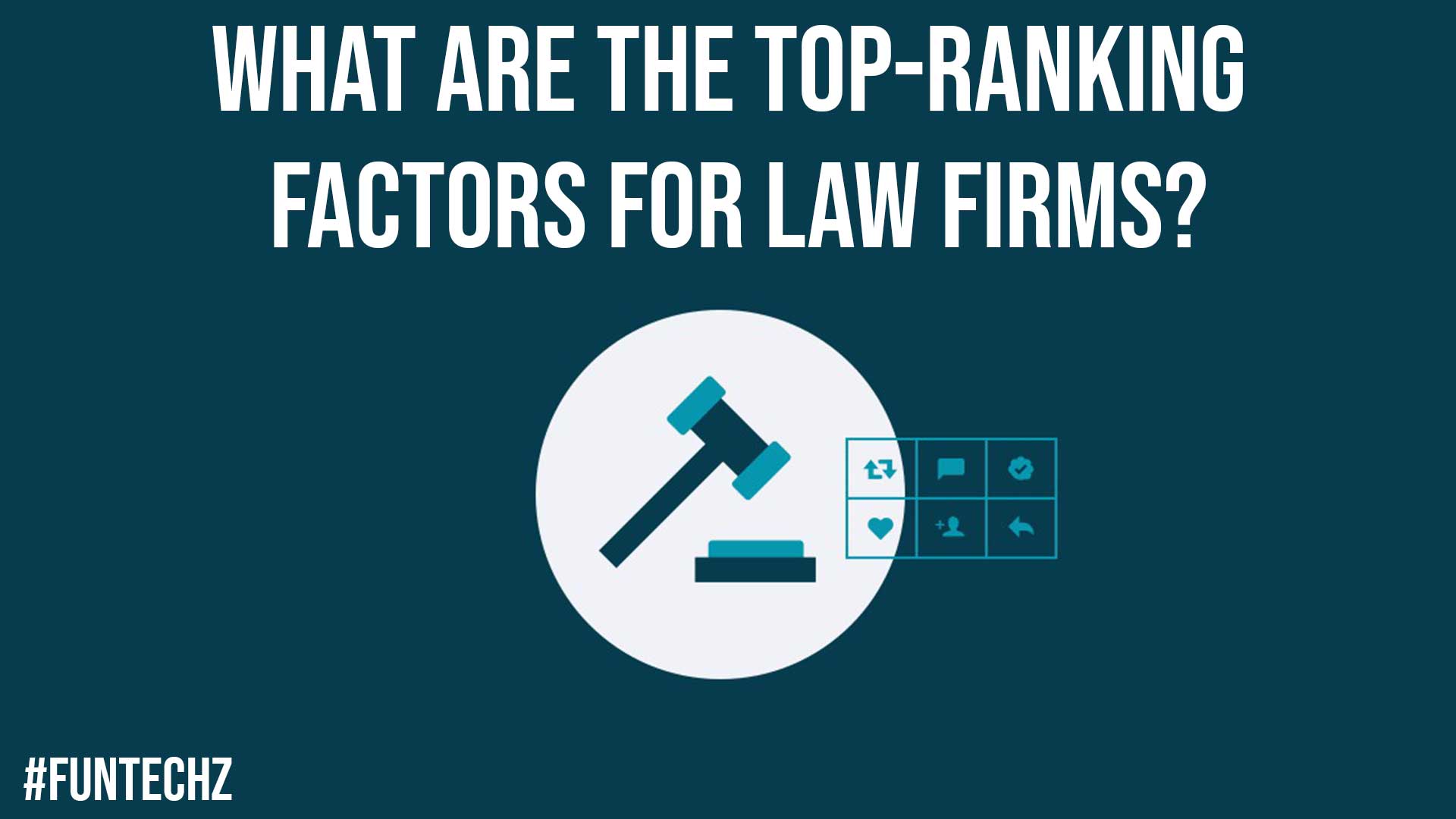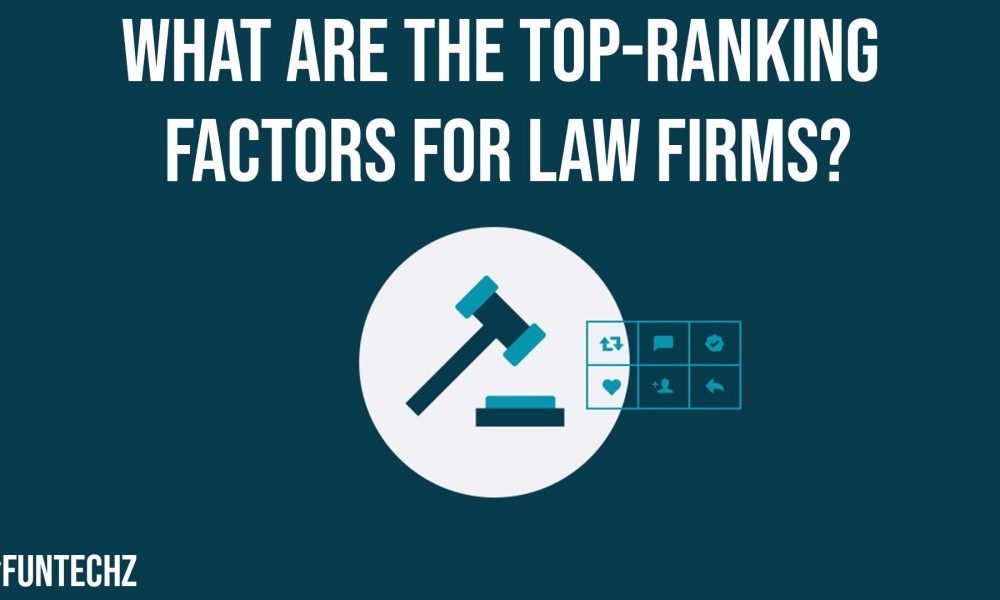When you are trying to improve your search engine optimization (SEO) game, there are a lot of factors that you have to keep in mind. One important thing that all too many forget about with respect to SEO is that there are select things that go into determining how well a website performs and understanding these factors does a world of good to how well you can handle an SEO campaign.
SEO is an art and should certainly be regarded as such.

The top-ranking factors for law firms for SE
The art of SEO can be tricky at times, but someone who “gets it” can go pretty far. One of the best ways to do this is through the above-mentioned understanding, so we will impart the knowledge of what these top-ranking factors are and how they work.
First off, one of the things you need to understand is that having third-party websites linking to your domain makes a huge difference for your website. In the event that links to your website are entirely internal, it is certainly not going to do very well for you. Not that promoting navigation through your website is a bad thing, but you should absolutely make sure that you have a way to get your website out there from multiple angles.
Also Read: All About ChexSystems: What Is It and What You Can Do About It?
Basically, the Google algorithm justifies this because if other websites are linking to sites on your website, it probably means that the information on your website is something that potential readers may want to be able to access. This can be utilized through cooperation with other websites, where perhaps you agree to support each other’s content by linking to it on various pages on their website, helping both of your websites rise in the Google search rankings.
This also applies to external links that go to specific pages on your website, so make sure that you also try to get links to those pages on other websites as well. Also make sure that you are careful with how you design these pages, as well as how they are linked to. For example, a personal injury page linked to the phrase “personal injury lawyer” may have a significantly better reach than if it was more generic.
Next, the algorithm is going to check out certain factors of an individual webpage, looking at the content of them to determine exactly what they were. This is why you want to use a healthy sampling of relevant keywords on the page, and why you want to have consistent words and phrases scattered throughout.
Not so densely so that it becomes illegible, but not too light that the emphasis on the keywords is missed. After this, the algorithm will dig into the nitty-gritty of the webpage, looking at the more technical side of things to determine more factors for its ranking. Your website is technically sound and well-made goes such a long way to make your website perform better.
The better your website’s load times are, for instance, the better for the algorithm. It will also look at how the content is structured, such as if you use <h2> headers to make things be better organized, as well as how your website structures its HTML.
This information is checked on a page level (as discussed above) as well as on a domain level. It will look at smaller details, such as the length of the domain name, the extension (e.g. .com or .org), whether the website has a trusted SSL certificate will affect how the algorithm handles things.
Another really important factor that the algorithm is going to consider is whether your website has a solid click-through rate, meaning that when people visit your webpage, they feel inclined to continue to read other pages on it. This tells the algorithm that the website was relevant to the search that the person did. If the click-through rate is low, you may see the algorithm favor your domain less.
Social media data, such as shares on Facebook and Twitter, will also be under the purview of the algorithm’s all-knowing gaze. So for instance, if people are sharing your content a lot, the Google algorithm will notice this.
These are several factors that the algorithm will look at in the process of determining how your website should ultimately rank, and one of the biggest takeaways you should have is that no one factor should be treated as too much more important than any other. Rather, you should look at all of these things as being one part of a greater whole, a whole that should be considered in its entirety.
Also Read: Is eNotary Same As Remote Online Notarization?
By having a better idea of what you should focus on with your websites and how to do it, you will be more able to make better web pages than you originally could. There are some factors that are going to be more valuable than others, but make sure that you do not miss the forest for the trees in trying to focus on one factor at the expense of the rest.














+ There are no comments
Add yours